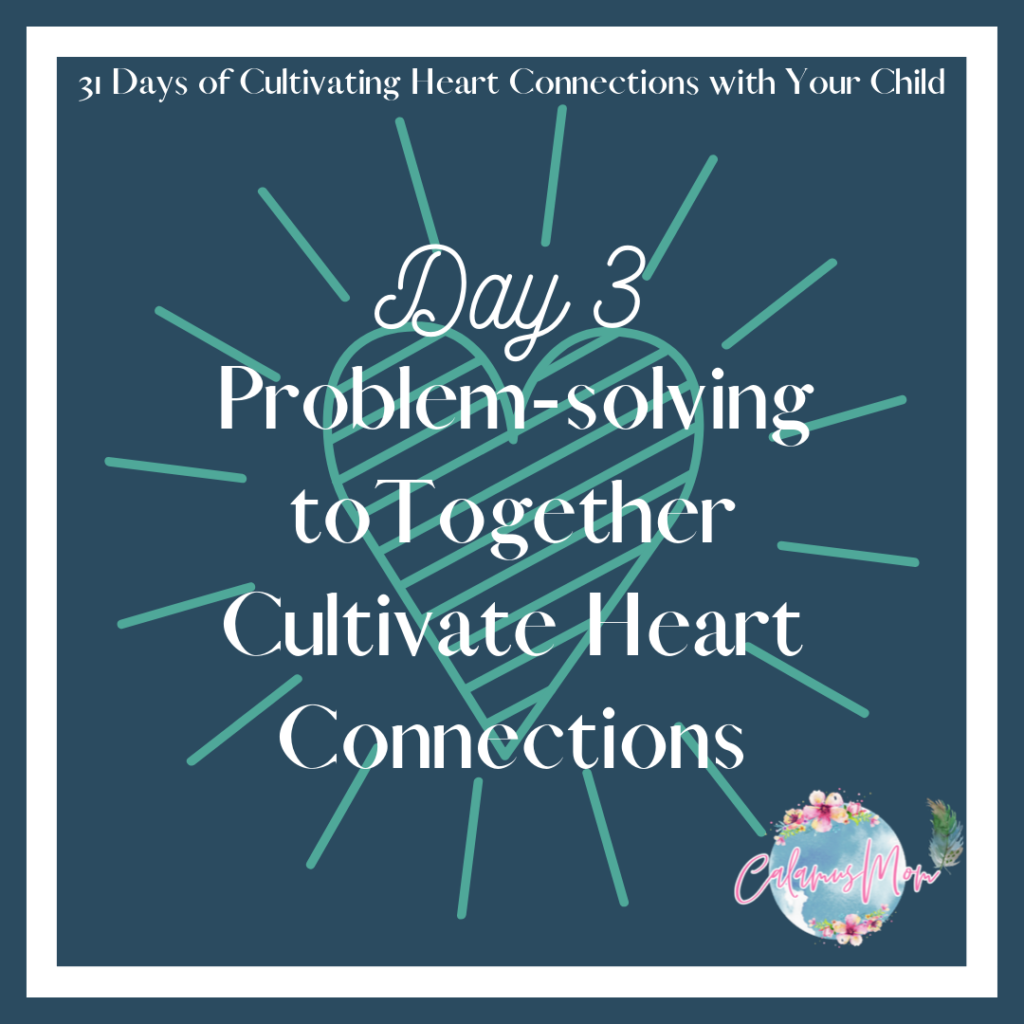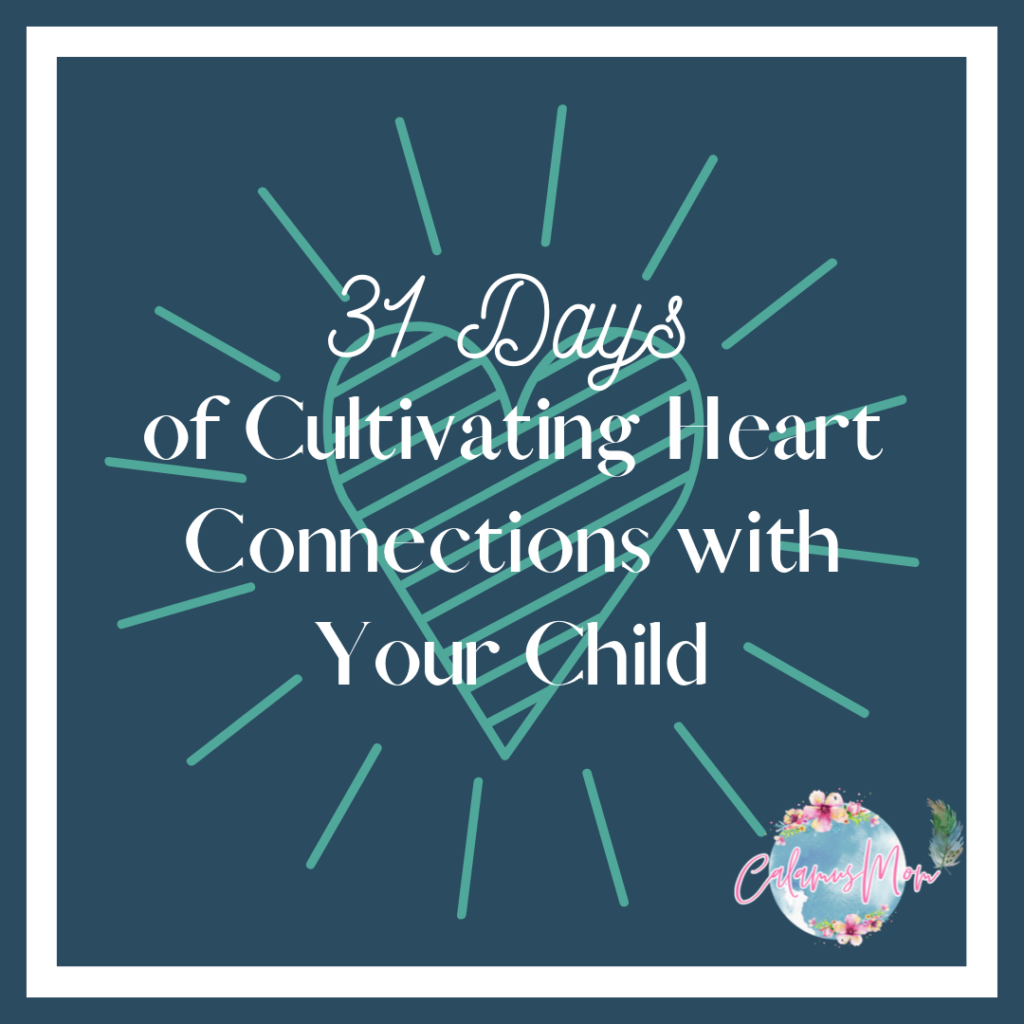This post is part of a series of 31 Day to Cultivating Heart Connections with Your Child as part of the 31 Days of Five Minute Free Writes Challenge.

His arms flailed in all directions as he hopped up and down. Noises of frustration came from his mouth, the mouth that was hidden along with the rest of his head by his shirt which was twisted and couldn’t be pulled the rest of the way on.
“Hey buddy, can I help you with your shirt?” I asked my three-year-old.
After a few more hops and a bit of a flop, he consented to let me help. I pulled his arm out, turned the shirt around, and tugged it the rest of the way over his head. As our eyes met, I gave his tummy a tickle and asked if that was better. His blue eyes sparkled as laughter erupted from within. Together we giggled and the frustration of his twisted shirt was forgotten.
A twisted shirt is a minor problem in the scheme of things, but at that moment, the twisted shirt was causing major frustration to his little heart. But whether problems are minor or major, helping our children solve their problems is a great way to cultivate those heart connections we are after.

Maybe your days are filled with lots of minor problems with your little children; I know some days with mine feel like an endless parade of minor problems all seeming like catastrophes to them. Maybe your child is struggling to learn because of a learning disability. Maybe your child has a broken heart. All of these problems are opportunities to cultivate heart connections just by you choosing to be present in the struggles.
Now just to clarify, I’m not suggesting we solve all our children’s problems for them. That doesn’t encourage them to think critically, learn from mistakes, or build resilience. I’m talking about being an active participant in our children’s lives when they have problems not just being completely hands-off and watching from the sidelines.
We can ask questions to help them think critically.
We can offer a helping hand when they are struggling.
We can give words of encouragement to let them know we believe in them.
We can work alongside them.
We can teach them to accept the wisdom of others.
“Two are better than one because they have a good return for their work. If one falls down, his friend can help him up, but pity the man who falls and has no one to help him up.” ~Ecclesiastes 4:9-10
When we help our children solve problems, we act as a team and gain the satisfaction of having worked together and accomplished something. When we help them, we let them know they are important to us and worth our time.
When we take the time to help them problem-solve, we cultivate heart connections with them.


Pingback: 31 Days of Cultivating Heart Connections with Your Child